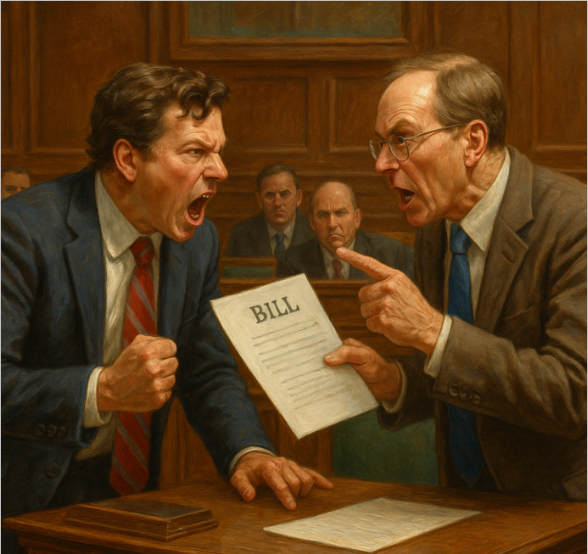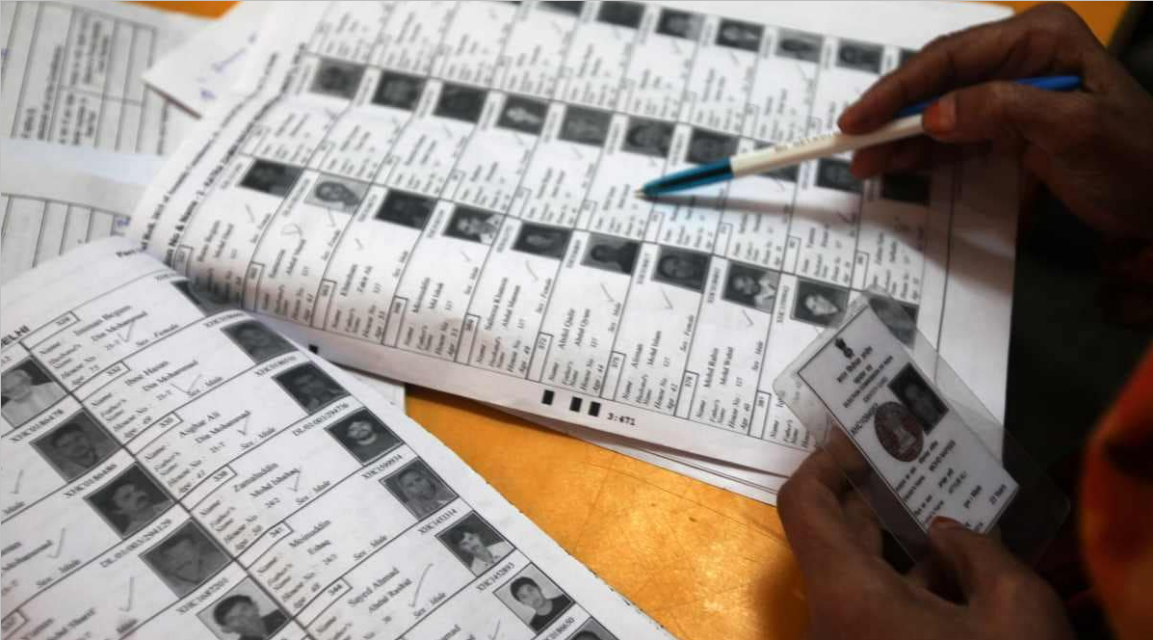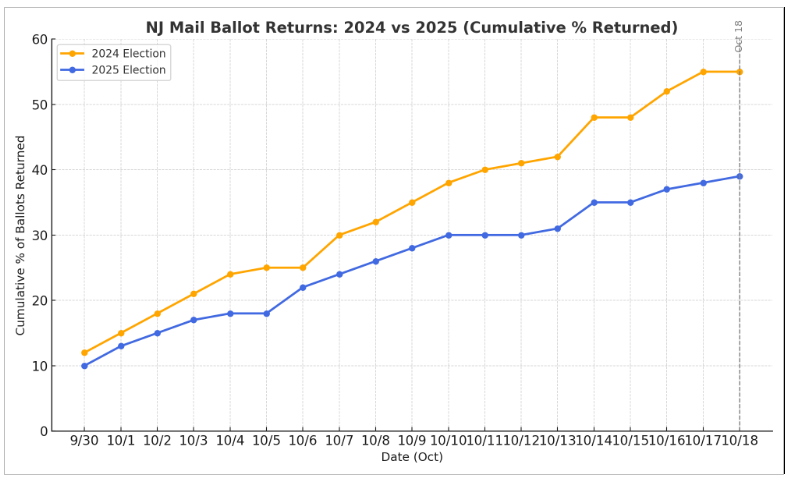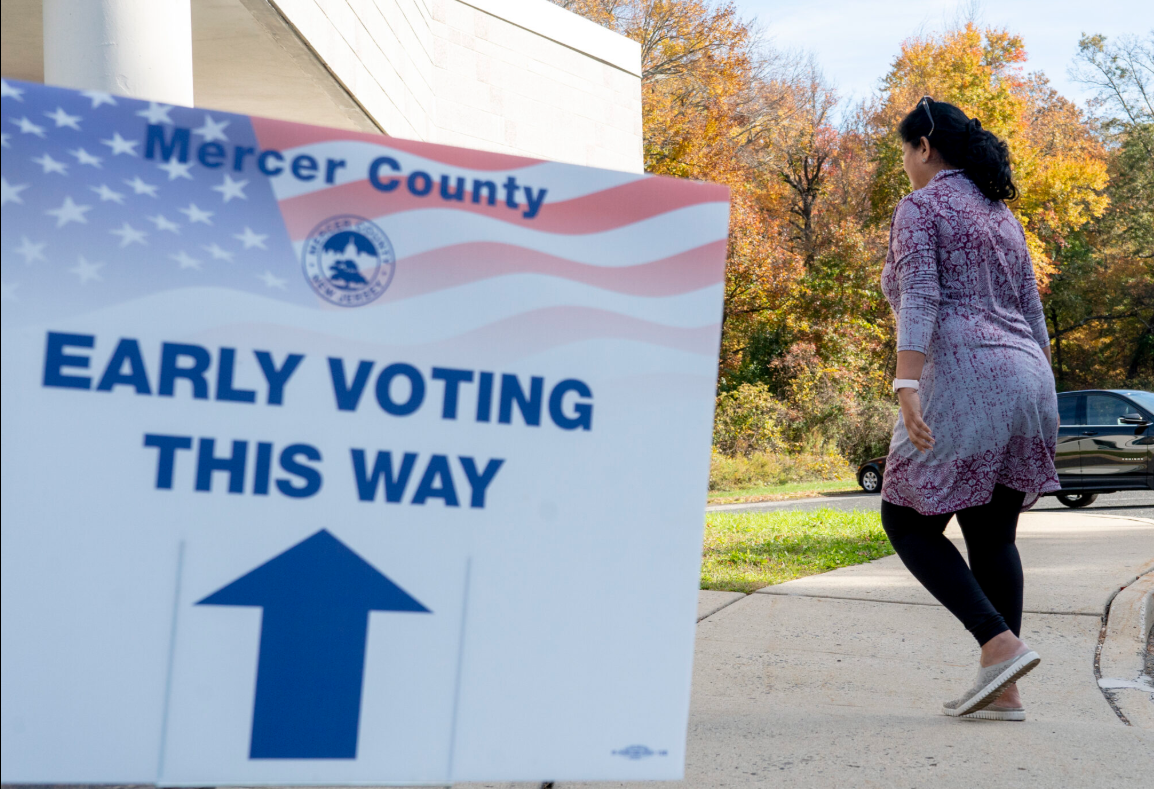New Jersey’s election system is already among the most transparent and accessible in the nation. Voters can cast their ballots by mail, vote early in person, or vote at the polls on Election Day. County election boards — operating under bipartisan oversight — maintain a process that counts every legitimate vote.
The proposed John R. Lewis Voting Rights Act (S3009/A4083) would not improve this framework. It would destroy it — transferring authority, adding costly mandates, and inviting court interference in what has long been a fair, well-run process.
A Solution in Search of a Problem
Election administrators testified before the Assembly Oversight Committee that there is no evidence of systemic disenfranchisement in New Jersey
The state already provides 45 days of mail-in voting, multiple early voting days, and a process to cure rejected ballots. Claims that voters are being prevented from participating are not supported by data — and this bill provides no clear mechanism to identify actual discrimination since the state’s voter system does not even collect racial or ethnic data.
This legislation appears to be a solution in search of a problem — one that risks creating confusion, not equity.
Shifting Power Away From Elected Legislators and Local Election Boards
As Burlington County Election Administrator Linda Hughes testified, “This bill seems to take the authority of conducting elections away from the legislature and the county boards of elections, and instead vests it with the court system”.
If enacted, the bill would allow judges to unilaterally alter election rules —including ordering ranked-choice voting, redrawing districts, or changing term lengths. That would fragment New Jersey’s uniform election laws and replace consistency with judicial discretion. Election rules should be set by the Legislature — not rewritten by individual judges.
Subjective and Open-Ended Legal Standards
The bill’s enforcement provisions are dangerously vague, allowing lawsuits based solely on an individual’s perception that their voting rights were impaired. That means anyone unhappy with election outcomes could claim discrimination based on subjective feelings about turnout or campaign rhetoric. Such a standard would expose election offices to constant, politically motivated litigation —draining resources and eroding public trust.
Costly Mandates and Bureaucratic Delays
The Act would impose new requirements far beyond federal law — such as translating all election materials into any language spoken by just2% of local voters, compared to the federal 10% threshold. This would force counties to spend millions on translation, printing, and compliance, even in areas where no communication barrier currently exists.
Worse yet, the bill’s “preclearance” rule would require state approval and a public comment period before counties could make even minor administrative updates — like correcting addresses, removing inactive voters, or relocating polling places. Such delays would slow down critical maintenance of voter rolls and undermine confidence in election integrity.
A Time for Vigilance — Not Complacency
Sources tell Citizens for NJ Election Integrity (C4NJEI) that this bill could move quickly during the lame duck legislative session that begins immediately after Election Day.
This would allow the measure to advance with minimal public scrutiny — a troubling possibility for a law that could so profoundly reshape New Jersey’s election system.
Citizens, lawmakers, and local officials must remain alert. A rushed vote in the post-election period could permanently alter how elections are conducted in the Garden State — without public input and without evidence that such changes are needed.
Call to Action
Now is the time for every concerned New Jersey resident to make their voice heard.
Contact your State Senator and Assembly representatives today and urge them to vote NO on A4083/S3009— before this bill moves forward in the lame duck session.
Preserve New Jersey’s fair, bipartisan, and transparent election system. Tell your legislators that our elections work — and we intend to keep them that way. Click this link to view the bill sponsors in the Assembly and here for the Senate and to communicate your views to them directly.





